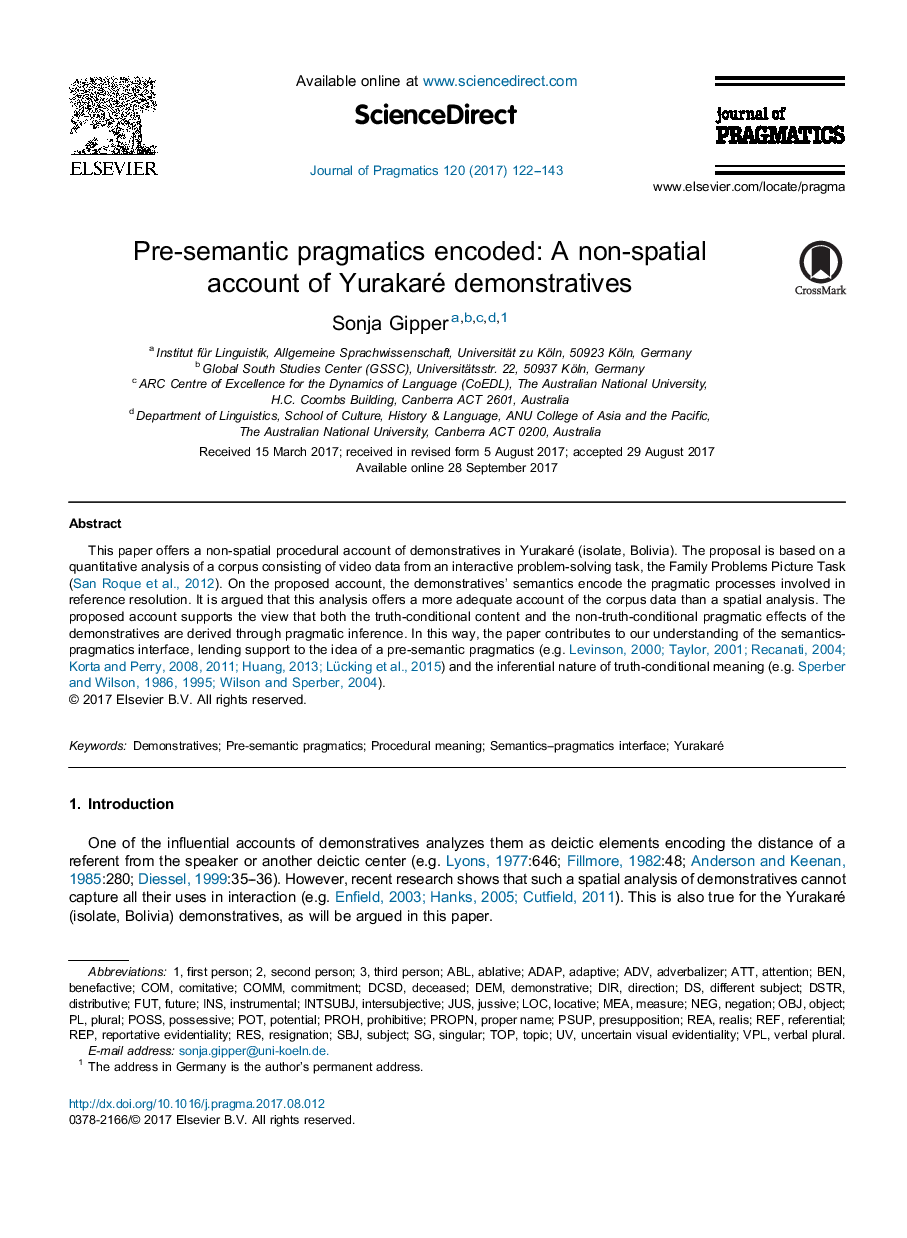| Article ID | Journal | Published Year | Pages | File Type |
|---|---|---|---|---|
| 5042617 | Journal of Pragmatics | 2017 | 22 Pages |
â¢The paper offers a non-spatial procedural account of the Yurakaré demonstratives.â¢The demonstratives' semantics encode the pragmatic processes involved in resolving reference.â¢On the proposed account, both truth-conditional and non-truth-conditional meaning are derived through pragmatic inference.â¢The proposed analysis lends support to the idea of a pre-semantic pragmatics and the inferential nature of truth-conditional meaning.
This paper offers a non-spatial procedural account of demonstratives in Yurakaré (isolate, Bolivia). The proposal is based on a quantitative analysis of a corpus consisting of video data from an interactive problem-solving task, the Family Problems Picture Task (San Roque et al., 2012). On the proposed account, the demonstratives' semantics encode the pragmatic processes involved in reference resolution. It is argued that this analysis offers a more adequate account of the corpus data than a spatial analysis. The proposed account supports the view that both the truth-conditional content and the non-truth-conditional pragmatic effects of the demonstratives are derived through pragmatic inference. In this way, the paper contributes to our understanding of the semantics-pragmatics interface, lending support to the idea of a pre-semantic pragmatics (e.g. Levinson, 2000; Taylor, 2001; Recanati, 2004; Korta and Perry, 2008, 2011; Huang, 2013; Lücking et al., 2015) and the inferential nature of truth-conditional meaning (e.g. Sperber and Wilson, 1986, 1995; Wilson and Sperber, 2004).
